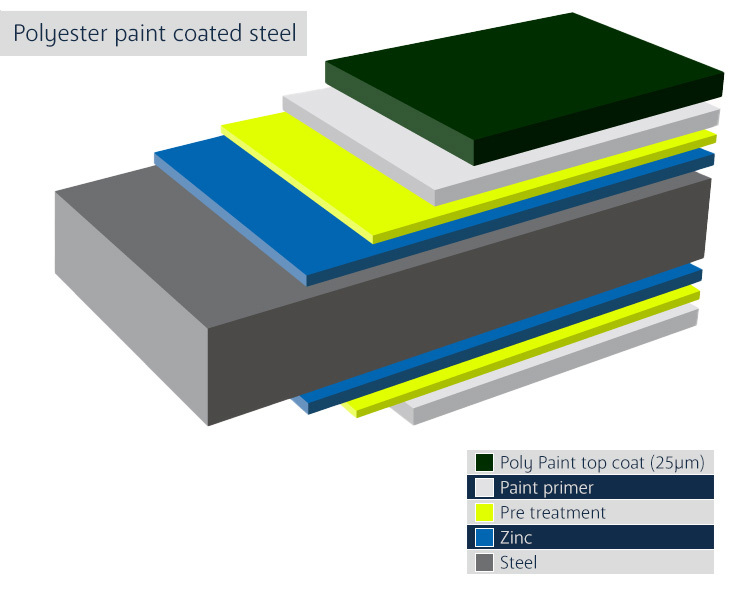Polyester Paint

Polyester paint is a very useful for agricultural uses as it has been stated as an acceptable material by a number of agriculture authorities. Polyester paint is also a cheaper alternative for roofing than other materials available. Polyester is coated upon zinc-coated steel in accordance to BS EN 10147. This type of roofing has a medium lifetime and should be recoated every ten to fifteen years (or less if there is pollution).
When handling polyester painted sheets care must be taken as the polyester coating can easily be scratched. Also sheets should not be slid against each other as this can also cause wear in the surface coating.
Polyester paint coated sheeting is a very high quality galvanised steel sheet with a primer paint finished with a final layer of polyester paint.
Five standard colours
Galvanised substrate to BS EN 10346:2009 and primed undercoat offering excellent corrosion resistance
Typical properties
| Finish property | Unit of measure | Value | Test standard |
|---|---|---|---|
| Nominal organic coating thickness | (µm) | 25 | EN13523-1 |
| Specular gloss (60°) | (%) | 10-35 | EN13523-2 |
| Scratch resistance | (g) | 3000 | EN13523-12 |
| Abrasion resistance (Taber, 250 rev, 1kg) | (mg) | <30 | EN13523-16 |
| Flexibility (minimum bend radius) | (T) | 1.5 | EN13523-5 |
| Adhesion | (%) | 100 Pass | EN13523-6 |
| Corrosion resistance: Salt Spray Humidity |
(h) (h) |
500 1000 |
EN13523-8 EN13523-25 |
| UV Resistance | Excellent | EN10169 | |
| Fire classification | A1 | BS EN 13501 |
Steel gauges
0.5mm (24swg)
0.5mm is a lightweight gauge ideal for use on walls and smaller domestic and agricultural roofs. With a typical weight of only 4.8kg/m². 0.5mm gauge steel cladding is especially useful when weight is a concern. Please be aware that if you are planning to use 0.5mm gauge sheets on your roof then you must support the sheets more often¹, typically every 0.6m (or 2ft).
0.7mm (22swg)
0.7mm steel cladding is the established standard for roofing applications with a typical weight of 6.8Kg/m². 0.7mm gauge can typically be supported¹ every 1m.








